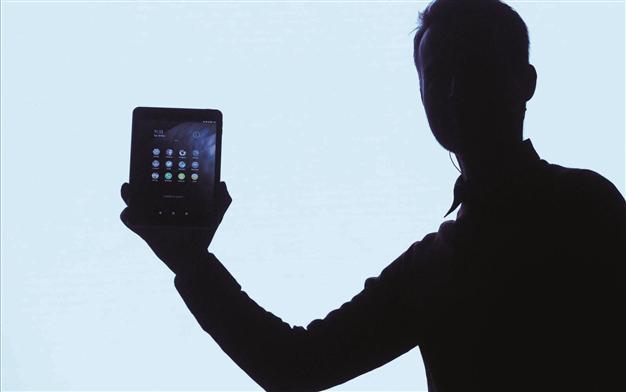Turkish Internet users fear for their online privacy
ISTANBUL

Criminal hacking into personal bank accounts and stealing personal information, like private messaging and photos, are the two topics that Internet users in Turkey fear the most.
Some 63 percent of Internet users in Turkey are concerned about their online privacy, which is slightly less than the world average of 64 percent, according to a recent survey.The CIGI-Ipsos Global Survey on Internet Security and Trust revealed that while 89 percent of Internet users in Turkey consider access to the Internet a basic human right, this figure is an average of 83 percent across the 24 surveyed countries.
Some 77 percent of Internet users in Turkey are concerned about the police or other government agencies secretly monitoring their online activities, much higher than the average elsewhere of 61 percent.
These fears among Turks are not without justification. In September, the government granted Turkey’s Telecommunications Directorate’s (TİB) extraordinary authority to monitor Internet users and block websites and their content without court permission.
Although the bill was overturned by the Constitutional Court a month later, a new draft bill that is expected to be sent to Parliament in the coming days covering social media is expected to reintroduce the most controversial provisions of the law, giving the TİB the authority to close websites within four hours on the basis of national security, protecting public order, and preventing crime.
Meanwhile, in the 24 countries surveyed, only 48 percent of Internet users believe their government does a “very good job” of making sure the Internet in their country is safe and secure, underlining the general wariness about the role of national governments in Internet governance.
Among the top areas of concern for Turkish Internet users, criminal hacking into personal bank accounts ranks highest, with 85 percent of respondents citing this as a concern. Criminal hacking is followed by personal information, such as private messages and photos, being stolen through hacking, with 83 percent citing this as a concern. These figures are 78 and 77 percent, respectively, among Internet users from the 24 countries surveyed.
Some 74 percent of Turks say they are concerned about private companies monitoring online activities and selling that information for commercial purposes without explicit consent.
Fen Hampson, the director of CIGI’s Global Security & Politics Program, said the most remarkable finding of the survey was that fears about human security had moved from the physical world to now include the virtual world.
“There is a gaping trust deficit in the Internet as people around the globe increasingly worry that their online identities and communications will be compromised or stolen by those who operate in the dark recesses of the Internet,” said Hampson.
“Unless trust is restored in the Internet through creative governance innovations, its real potential to promote human development and global prosperity will be severely compromised,” he added.
















